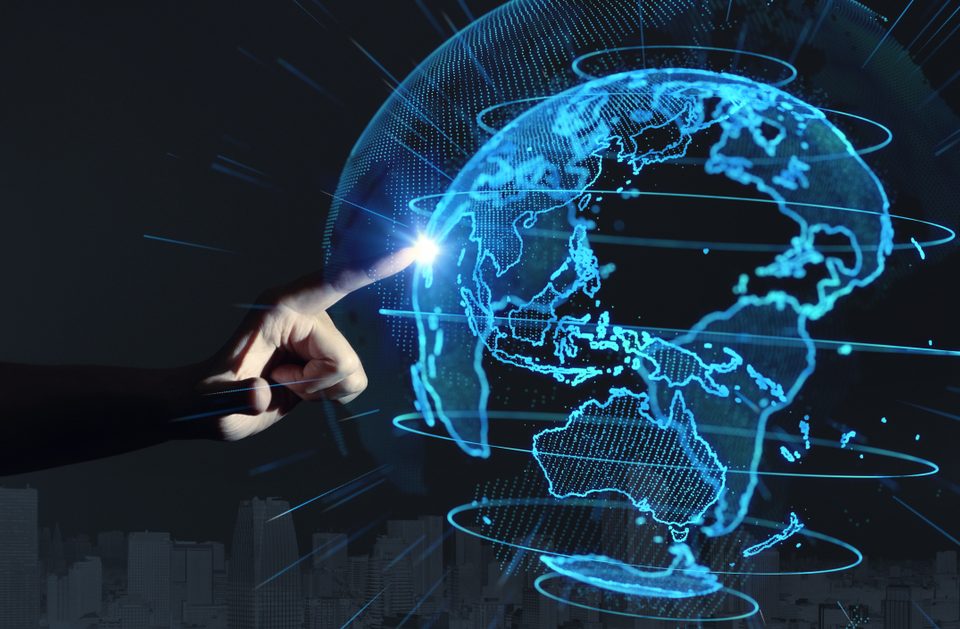 By Ricky Kapur, Vice President of Sales, Marketing and Operations, Microsoft Asia Pacific.
By Ricky Kapur, Vice President of Sales, Marketing and Operations, Microsoft Asia Pacific.
2020 reminds me of the start of a Charles Dicken’s novel: It was the best of times; it was the worst of times. Around the world, millions of people have lost loved ones and many more have felt the devastating impacts of the pandemic.
Yet, we also saw the best of ourselves – our frontline workers stepped up and we as a community responded in kind. In Thailand, more than 1 million people volunteered to help with contact tracing across the country. The Developers Connect Philippines created RapidPass and TraceCovid.ph, which were rolled out by the government to help people move around safely and quickly. Our colleagues, too, contributed by sewing face masks for the needy in Hong Kong.
2020 also pushed us to do better. It motivated us to reorient our values as well as find new creative outlets and greater purpose. Personally, it made me cherish family time even more; my wife and I started attending online fitness classes together, we spent more time with my son, and scheduled regular video calls with family living in other countries.
Digital First In Our Everyday Lives
On an organizational level, we re-evaluated the ways in which we operate and do business. With social distancing measures and lockdowns, which are still everyday realities for many of us, businesses and organizations had to go online, shifting our daily activities onto digital platforms.
One of the earliest shifts was in the number of people taking up internet banking. In April 2020, UnionBank recorded a 160% increase in daily sign-ups on its online and mobile banking platforms, and developed platforms for their customers to access copies of statements and proof of investments remotely.
Learning, too, did not stop even though schools had to close. In Vietnam, we worked with the Ministry of Education and Training to equip schools with remote learning capabilities; this enabled 200,000 students in Hai Phong to continue with virtual classes on Teams. We also supported the Educational Broadcasting System in deploying Microsoft Azure, expanding their system capacity by 500 times and allowing 3 million middle and high school students in Korea to continue learning. Moving forward, remote learning is here to stay – supplementing classroom learning and being an equalizer for students from rural communities, removing the need to travel vast distances to get to school every day.
These phenomenal shifts in end-user behavior guarantee that we won’t be going back. As we look ahead, digital first will not only be a permanent fixture, but will grow to permeate even more aspects of our everyday lives.
In healthcare, resources were strained at the start of the pandemic, and hospitals had to streamline operational processes so that people could continue receiving medical attention in a timely manner. In Thailand, the Ministry of Public Health worked with Feedback180° to pool data that drives the work of medical personnel, supporting more than 1,500 daily users from 966 hospitals across the nation. Today, building on efficiency and flexibility, we’re bringing together data that used to sit in silos.
Governments and judiciaries have also taken the digital leap forward. The Parliament of the Maldives held virtual proceedings and in the Philippines, the Supreme Court adopted virtual online hearings, releasing 4,683 Persons Deprived of Liberty in the first nine days. This year, for the first time in its 119-year history, the Philippine judiciary has taken an significant step to formally institutionalize videoconference proceedings, increasing access to transparent proceedings and fair justice for more Filipinos at all levels of the justice system.
Cloud Enabled Continuity
In 2020, we saw a transformational shift to the cloud. For Zuellig Pharma, a shift to Microsoft cloud ensured that 350,000 medical facilities and millions of patients across 13 countries in Asia were able to receive a continued supply of vital medicines and drugs in these crucial times.
In the year ahead, organizations must look to generating even more value from the digital imperative to remain plugged in to their customers, increasing resiliency and setting a solid foundation for growth. In New Zealand, Farmlands shifted to the cloud with a new online ordering system, so that people could continue receiving essential food items amid the pandemic. In a week, their “Click and Collect” e-commerce platform completed four times as many transactions as the previous platform had in a full year. Looking beyond “business as usual”, they’re also leveraging the data and insights from the platform to unlock a new world of automation and efficiency.
AI and machine learning have also come to the fore, with businesses investing in solutions to become more agile and resilient to future shocks. Today, Lenovo leverages predictive analysis to better anticipate demand. Azure machine learning corroborates internal data with publicly available information on COVID-19, consumer spending, and economic performance for more accurate forecasting.
Resilience Needs An Innovation Mindset
Many have found opportunities to grow professionally in 2020 and more than just a business imperative, it has also become a personal process that is set to continue in 2021.
Our global skills initiative aimed at training 25 million people with digital skills mapped to jobs that are in-demand has helped more than 30 million people globally, an achievement that has far exceeded our initial target. We are excited to expand our vision this year and commit to help 250,000 companies make a skills-based hire in 2021. Recognizing a need for a more inclusive post-pandemic recovery, this next skilling chapter will build a more inclusive skills-based economy and support the labour market.
In the region, we’re also supporting our global skilling initiative with industry partnerships. Together with the Biji-biji Initiative in Malaysia, we launched the Digital Skills and Gig Economy Employability Program, which aims to train 500 youths from the below 40 percent communities and budding professionals interested in building a viable freelance career. We’re also committed to upskill, place, and fill demand for tech-enabled jobs for up to 1,000 Singaporeans as part of the SGUnited Jobs and Skills Package, in partnership with Generation and other government agencies.
What’s Next For Asia Pacific In 2021: Innovate And Be Open-Minded
Our experiences from 2020 have certainly armed us with the knowledge of what we can accomplish and the way forward in 2021.
On a business level, we now have an opportunity to drive the next wave of innovation and make technology better than ever before. With everyone moving online in almost every aspect of their lives, we have a tremendous amount of feedback, which will guide us in creating tech solutions required in our future world.
On a more personal level, 2020 forced us to be open to new ways to live, work and play, simply because traditional ways of carrying out our daily activities were not feasible or possible. In the year and years ahead, we will have a choice. And I hope that we will continue having this level of open mindedness, which is required for us to innovate, adopt new technologies and move society forward.







